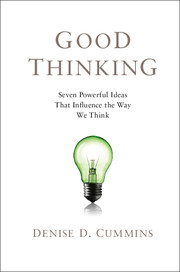Five - The Game of Logic
Published online by Cambridge University Press: 05 June 2012
Summary
Suppose there is a movie playing at a distant theater that you really want to see. But it is too far to walk there, and you don’t have a car. Your deliberation on the matter may go something like this:
I want to go to the movie.
But I don’t have a car.
My friend has a car and is going to the movie.
If he takes me along, then my problem is solved.
So I’ll call him and ask him to take me along.
The end result of this line of reasoning is an action – calling your friend and asking for a ride. This kind of thinking is called practical reasoning. It is reasoning directed toward action.
The thing about the human mind, however, is that it is always thinking – even when we are not trying to solve a problem. More often than not, the end result of this thought process is a belief, not a plan for action. This kind of reasoning is called theoretical reasoning (or discursive reasoning). We use theoretical reasoning to determine which beliefs follow logically from other beliefs. Suppose you asked your friend for a ride to the movie, but he told you his car wasn’t working. Then you got a ride from someone else, and you saw your other friend drive into the theater parking lot.
- Type
- Chapter
- Information
- Good ThinkingSeven Powerful Ideas That Influence the Way We Think, pp. 80 - 98Publisher: Cambridge University PressPrint publication year: 2012



